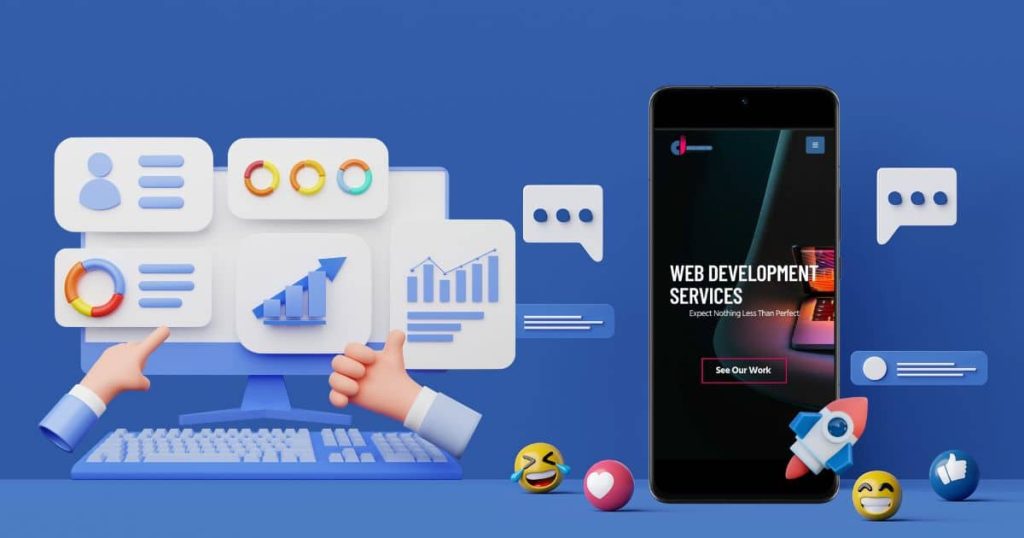
In today’s digital landscape, social media plays a pivotal role in how we communicate and consume information. Social media integration on web development has significantly changed the way websites are created and utilized. In this blog post, we’ll delve into the effects of social media integration on web development and its importance for businesses and developers.
1. Boosted User Engagement
A major benefit of integrating social media on web development is to enhancement of user engagement. By adding social media buttons and feeds to websites, developers make it easy for users to share content, comment, and connect with brands. This not only improves the overall user experience but also encourages visitors to stay longer on the site. Websites that effectively integrate social media often experience higher interaction rates and better user retention.
2. Enhanced SEO and Increased Traffic
Social media signals are now part of search engine ranking algorithms, making social media integration vital for SEO. Websites that successfully incorporate social media can enjoy greater visibility in search results. When users share content from a site, it can lead to more backlinks and improved search rankings, resulting in increased organic traffic. This is advantageous for both web developers and site owners.
3. Simplified Content Sharing
Social media integration on website makes it easy to share content. Features like “share” buttons or embedded posts allow users to disseminate information across multiple platforms quickly. This seamless sharing process promotes content virality and helps raise brand awareness. Developers can customize sharing options to fit specific platforms, optimizing content for various audiences.
4. Valuable Analytics Insights
Integrating social media into websites provides developers and businesses with crucial insights into user behaviour. Many social media platforms offer analytics tools that track interactions and engagement metrics. By using this data, web developers can make informed decisions about design, content strategies, and marketing campaigns, leading to continuous improvement and a deeper understanding of target audiences.
5. Easier User Authentication
Social media integration streamlines the login process. Instead of creating new accounts, users can log in using their existing social media profiles. This enhances user experience and reduces friction during registration. For developers, this means less time spent on building authentication systems, leading to higher user conversion rates.
6. Real-Time Content Updates
Websites can embed social media feeds, allowing for real-time content updates. This dynamic integration keeps sites fresh and engaging, enabling users to view the latest posts or updates without navigating away. This feature is particularly beneficial for blogs and news websites, helping them remain relevant in a fast-paced environment.
7. Fostering Brand Loyalty and Community
Integrating social media on web helps create a sense of community around a brand. By providing platforms for users to connect, share experiences, and engage in discussions, businesses can cultivate loyalty among their customers. For web developers, this involves creating spaces that encourage interaction, such as comment sections, forums, or social media widgets displaying user-generated content.
Conclusion
Incorporating social media into web development is essential for businesses aiming to succeed online. The advantages—ranging from improved user engagement to valuable analytics—are evident. For developers, recognizing the significance of social media integration allows for the creation of more dynamic, user-friendly websites that meet the expectations of today’s digital consumers.
As we continue to navigate this ever-evolving online environment, it’s vital for developers and businesses to embrace social media integration and maximize its potential. By doing so, they can ensure that their websites remain relevant, engaging, and effective in reaching their target audiences.
Questions:
How does real-time social media feed integration keep website content relevant?
How does integrating social media enhance user interaction on websites?
Read our blog
The Impacts of Technology on Human Relationships
